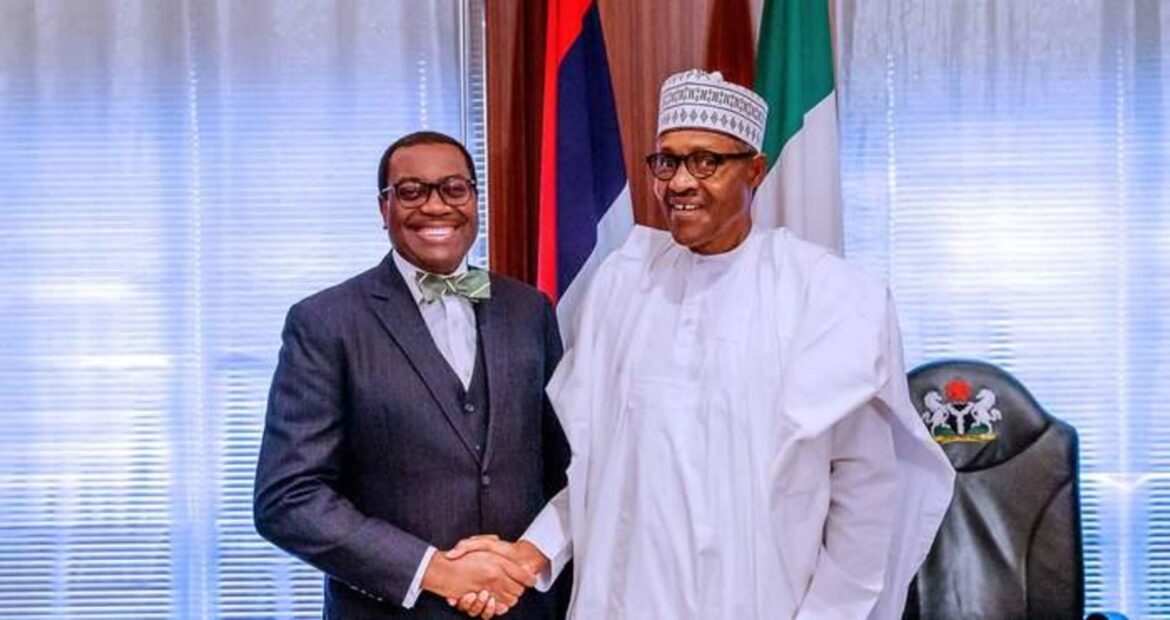By Asmau Ahmad
President Muhammadu Buhari and the African Development Bank (AfDB) Group President, Dr Akinwumi Adesina have urged global businesses and leaders to boldly invest in Nigeria.
In a statement from the Communication and External Relations Department, AfDB, the two leaders made the call at the Nigeria International Economic Partnership Forum in New York.
The Nigerian government and the African Business Roundtable organised the event on the sidelines of the 77th session of the United Nations General Assembly.
The Nigerian president was represented by his Chief of Staff, Professor Ibrahim Gambari.
Several others from the private, public, investment, and donor community also spoke at the forum.
The leaders reassured participants that the country was still an investment destination of choice.
President Buhari said the overall Nigerian economy was ripe for increased investment.
The president further highlighted his government’s measures to tackle insecurity and improve the country’s business climate.
“Our administration has put in much investment in improving security, and we are committed to doing much more. We will continue to give all necessary support to our security outfits to ensure they can tackle the challenge headlong.”
Buhari also highlighted initiatives his government was undertaking to enhance the country’s economic development.
This included intensifying policy reforms, bolstering governance, and encouraging public-private investments in social, human, and physical infrastructure.
“Nigeria could be the fastest growing African economy by 2050 and could move up the global GDP ratings to 14th in the same year.
“Provided we succeed in our efforts to diversify the economy away from oil and strengthen its institutions and infrastructure.”
According to him, Nigeria is already committed to diversifying the economy and the country is also enjoying significant results.
Buhari also cited the new Integrated National Financing Strategy for enhancing the impact of development finance and expanding the country’s ability to finance its Sustainable Development Goals.
The private sector is expected to play a significant role in driving the strategy.
Also speaking, the president of the AfDB said Nigeria had to fix its security situation.
“To attract greater foreign direct investment to Nigeria, we must fix the security situation.
“Capital does not like to be troubled. Ultimately, investment capital must be made comfortable. Only then can it be attracted.
“With the right conditions in place, we can confidently say Nigeria is a great investment destination.”
Adesina said even though Nigeria faced several challenges, the country remained an attractive investment destination.
He described Nigeria as an investors dream with a strong market pull, with a rapidly growing middle class, and burgeoning youth that could create demand and spur entrepreneurship.
“Investors must recognise this and invest. That’s why the AfDB, together with the Islamic Development Bank and the French Development Agency, is investing 618 million dollars in the Digital and Creative Enterprises Programme in Nigeria.
“The programme will support the creation of 225 creative start-ups and 451 digital technologies for small and medium-sized enterprises. They will create 6.1 million jobs and add 6.4 billion dollars to the economy.”
He further said the International Fund for Agricultural Development, and the Islamic Development Bank had provided 540 million dollars to develop special agro-industrial processing zones in the country.
The funding is expected to strengthen Nigeria’s food and agribusiness value chains and increase its competitiveness.
“That is the power of international partnerships working for Nigeria,” Adesina said.
According to the statement, Nigeria has inaugurated a National Development Plan (2021-2025) to generate 21 million full-time jobs and lift 35 million people out of poverty by 2025.
To achieve this, the country requires an investment commitment of about N348 trillion (about 809 billion dollars), which depends on strong partnerships between the private and public sectors.




